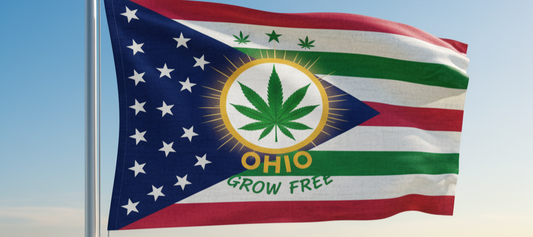What is THCV
What is THCV? The "Diet Weed" Cannabinoid That Curbs Your Appetite
You’ve heard of THC and CBD, but the cannabis world is full of hundreds of other fascinating compounds called cannabinoids. One of the most buzzworthy newcomers is **Tetrahydrocannabivarin (THCV)**. Dubbed "diet weed" or "the sports car of cannabinoids," THCV offers effects that are distinctly different from its cousin, THC, particularly when it comes to energy and appetite. So, what exactly is this compound, and why is it generating so much excitement?
The Science Behind THCV: A Molecular Difference
THCV is a naturally occurring cannabinoid found in the cannabis plant, though usually only in trace amounts. Its molecular structure is very similar to THC (Delta-9-Tetrahydrocannabinol), but it has a subtly different side-chain—three carbons instead of THC's five. This small molecular difference is what accounts for its unique effects:
- Less Psychoactive: At low doses, THCV is generally considered non-psychoactive. You won't get "high" from it.
- Psychoactive at High Doses: If consumed in high doses, THCV can produce a noticeable psychoactive effect, but it is typically described as clear-headed, uplifting, and much shorter-lived than a traditional THC high.
- Unique Receptor Interaction: THCV interacts with the body's endocannabinoid system (ECS) in a unique way. It acts as an **antagonist** (blocker) at the CB1 receptor, which is the exact opposite of THC, which acts as an **agonist** (activator). This is key to its appetite-suppressing effect.
The Most Talked-About Benefit: Appetite Suppression
The main reason THCV has earned the nickname "diet weed" is its ability to **suppress appetite**. Unlike traditional THC, which is famous for causing the "munchies" (by activating the CB1 receptor), THCV works to block or dampen that signal. For those looking for a clear-headed cannabis experience without the associated hunger pangs, THCV is a promising option.
Other Reported Benefits of THCV
While research is ongoing, early studies and anecdotal reports suggest THCV may have several other beneficial properties:
- Energy and Focus: Many users report that THCV provides an immediate, clear-headed boost of energy and focus without the jitters associated with caffeine. It's often favored as a daytime cannabinoid.
- Fast-Acting and Short-Lived: When THCV is psychoactive, its effects typically come on quickly and dissipate faster than THC, making it easier to manage and integrate into a busy day.
- Bone Health: Early research suggests THCV may promote the growth of new bone cells, making it a subject of interest for conditions like osteoporosis.
- Blood Sugar Regulation: Studies have explored THCV's potential role in regulating blood sugar and insulin levels, particularly for managing Type 2 diabetes.
Where to Find THCV
Because THCV is usually found in small quantities, specific strains of cannabis are bred to have higher concentrations. These strains are often Sativa-dominant landraces, particularly those originating from Africa, such as:
- Durban Poison
- Doug's Varin
- Pineapple Purps
As the market grows, you can now find THCV in concentrated forms, including tinctures, vape cartridges, and specialized edibles, making it easier to consume meaningful amounts of the cannabinoid.
Final Thoughts...
THCV stands out as a unique and powerful compound that challenges the traditional perception of cannabis effects. By offering stimulating, clear-headed energy and, most notably, curbing appetite, it's quickly becoming a favorite for those seeking wellness and functionality from their cannabis experience. As research continues to unfold, THCV is cementing its place as one of the most exciting cannabinoids on the market.





